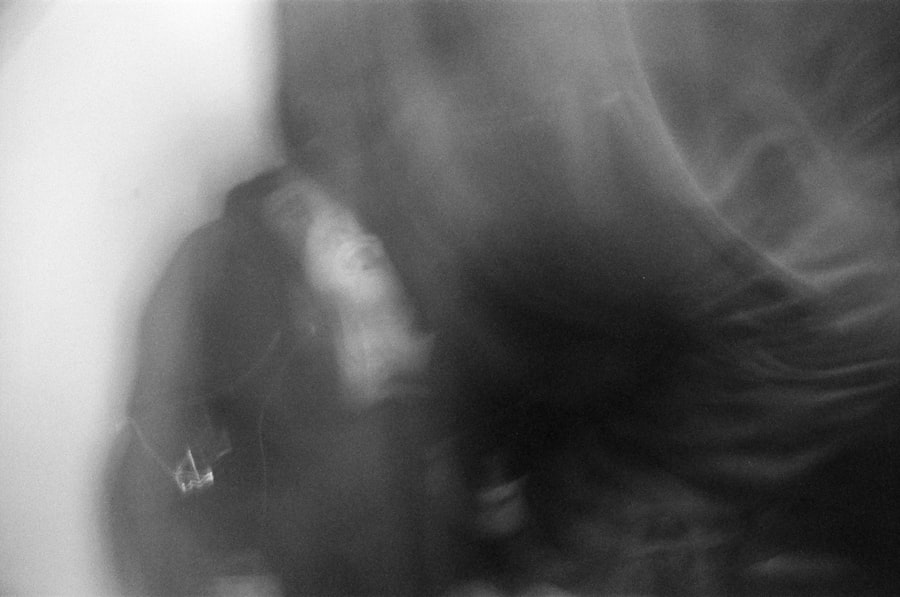Depersonalization Derealization Disorder (DPDR) is a complex psychological condition characterized by persistent feelings of detachment from oneself or one’s surroundings. You may find yourself feeling as though you are observing your life from outside your body, or that the world around you seems unreal or distorted. This disorder can be disorienting and frightening, often leading to significant distress and impairment in daily functioning.
While many people experience fleeting moments of depersonalization or derealization, those with DPDR experience these sensations persistently, which can interfere with their ability to engage fully in life. The disorder is classified under dissociative disorders in the Diagnostic and Statistical Manual of Mental Disorders (DSM-5). It is essential to understand that DPDR is not a sign of a severe mental illness or a reflection of a person’s character.
Instead, it is a response to overwhelming stress or trauma, manifesting as a coping mechanism. You may feel isolated in your experiences, but it’s crucial to recognize that you are not alone; many individuals face similar challenges.
Key Takeaways
- Depersonalization Derealization Disorder is a mental health condition characterized by feeling detached from oneself and the surrounding environment.
- Symptoms include feeling like an outside observer of one’s thoughts and actions, as well as experiencing a sense of unreality or detachment from the world.
- The disorder can significantly impact daily life, leading to difficulties in relationships, work, and overall functioning.
- Potential causes and triggers of the disorder may include trauma, stress, and certain personality traits.
- Depersonalization Derealization Disorder often co-occurs with other mental health conditions such as anxiety, depression, and PTSD.
Symptoms and Diagnostic Criteria
The symptoms of Depersonalization Derealization Disorder can vary widely from person to person, but they generally fall into two main categories: depersonalization and derealization. Depersonalization involves feelings of detachment from oneself, where you might feel like an observer of your thoughts, emotions, or body. You may describe this sensation as feeling robotic or as if you are living in a dream.
On the other hand, derealization refers to the perception that your surroundings are unreal or distorted.
To receive a diagnosis of DPDR, certain criteria must be met according to the DSM-5.
You must experience persistent or recurrent episodes of depersonalization, derealization, or both. These experiences should cause significant distress or impairment in social, occupational, or other important areas of functioning. Additionally, it is crucial that these symptoms are not attributable to the physiological effects of a substance or another medical condition.
Understanding these criteria can help you recognize whether your experiences align with DPDR and encourage you to seek professional help if needed.
The Impact on Daily Life

Living with Depersonalization Derealization Disorder can profoundly affect your daily life. You may find it challenging to maintain relationships, perform at work or school, and engage in activities that once brought you joy. The persistent feelings of detachment can lead to a sense of isolation, making it difficult for you to connect with others emotionally.
Friends and family may struggle to understand what you are going through, which can further exacerbate feelings of loneliness and frustration. Moreover, the cognitive effects of DPDR can hinder your ability to concentrate and make decisions. You might feel as though you are moving through life in a fog, making it hard to focus on tasks or remember important details.
This cognitive dissonance can lead to increased anxiety and stress, creating a vicious cycle that perpetuates the disorder. It’s essential to acknowledge these challenges and seek support to navigate the complexities of daily life while managing DPDR.
Potential Causes and Triggers
| Potential Causes and Triggers | Frequency | Severity |
|---|---|---|
| Stress | High | Medium |
| Poor Diet | Medium | Low |
| Lack of Sleep | High | High |
| Environmental Allergens | Low | Medium |
The exact causes of Depersonalization Derealization Disorder remain unclear, but several factors may contribute to its development. One significant aspect is the role of trauma and stress. You may find that experiences such as emotional abuse, physical trauma, or significant life changes can trigger episodes of depersonalization and derealization.
These experiences can overwhelm your coping mechanisms, leading your mind to dissociate as a protective response. In addition to trauma, other factors such as anxiety disorders, depression, and substance use can also play a role in triggering DPDR symptoms. For instance, if you have a history of anxiety, you may be more susceptible to experiencing dissociative symptoms during periods of heightened stress.
Understanding these potential causes can empower you to identify triggers in your own life and develop strategies for managing them effectively.
Co-occurring Disorders and Comorbidities
Depersonalization Derealization Disorder often coexists with other mental health conditions, complicating diagnosis and treatment. You may find that anxiety disorders, depression, post-traumatic stress disorder (PTSD), and borderline personality disorder frequently accompany DPDR. The presence of these comorbidities can intensify symptoms and make it more challenging to find effective treatment options.
For example, if you struggle with anxiety alongside DPDR, the heightened state of worry may exacerbate feelings of detachment and unreality. Similarly, if you have experienced trauma leading to PTSD, the dissociative symptoms associated with DPDR may serve as a coping mechanism for managing overwhelming memories or emotions. Recognizing these co-occurring disorders is crucial for developing a comprehensive treatment plan that addresses all aspects of your mental health.
Treatment Options and Management Strategies

When it comes to treating Depersonalization Derealization Disorder, a multifaceted approach is often most effective. Psychotherapy is one of the primary treatment modalities used to help individuals manage their symptoms. Cognitive-behavioral therapy (CBT) can be particularly beneficial in addressing negative thought patterns and developing coping strategies for dealing with dissociative experiences.
Through therapy, you can learn to reframe your perceptions and gradually reduce the intensity of your symptoms. In some cases, medication may also be prescribed to help manage co-occurring conditions such as anxiety or depression. While there is no specific medication approved for DPDR itself, antidepressants or anti-anxiety medications may alleviate some symptoms associated with the disorder.
It’s essential to work closely with a mental health professional to determine the best course of action tailored to your unique needs. In addition to professional treatment, self-care strategies can play a vital role in managing DPDR symptoms. Engaging in mindfulness practices, such as meditation or yoga, can help ground you in the present moment and reduce feelings of detachment.
Establishing a strong support network of friends and family who understand your experiences can also provide comfort and reassurance during difficult times.
Prognosis and Long-Term Effects
The prognosis for individuals with Depersonalization Derealization Disorder varies widely depending on several factors, including the severity of symptoms and the presence of co-occurring disorders. For some individuals, symptoms may diminish over time with appropriate treatment and support. You may find that engaging in therapy and developing coping strategies leads to significant improvements in your quality of life.
However, for others, DPDR can become a chronic condition that requires ongoing management. It’s essential to remain vigilant about your mental health and continue seeking support even when symptoms improve. Long-term effects may include persistent feelings of detachment or difficulty forming emotional connections with others.
By staying proactive about your mental health and utilizing available resources, you can work towards minimizing these long-term effects.
Support and Resources for Individuals and Families
Finding support is crucial for anyone navigating the challenges of Depersonalization Derealization Disorder. You may benefit from connecting with mental health professionals who specialize in dissociative disorders or trauma-informed care. Support groups can also provide a safe space for sharing experiences and learning from others who understand what you are going through.
Additionally, numerous online resources offer information about DPDR and coping strategies for both individuals and families affected by the disorder.
Encouraging open communication within your family about your experiences can foster understanding and create a supportive environment for healing.
In conclusion, while living with Depersonalization Derealization Disorder presents unique challenges, it is essential to remember that recovery is possible. By seeking professional help, utilizing coping strategies, and building a strong support network, you can navigate the complexities of this disorder and work towards reclaiming your sense of self and reality.
Depersonalization-derealization disorder (DDD) is a serious mental health condition characterized by persistent feelings of detachment from one’s body or surroundings, often leading to significant distress and impairment in daily functioning. Understanding the gravity of this disorder is crucial for both sufferers and mental health professionals. For a deeper insight into the complexities of DDD and its impact on individuals, you might find the article on Unplugged Psychology particularly informative. This resource delves into the nuances of the disorder, offering valuable perspectives on its symptoms, potential causes, and treatment options.
LEARN MORE About Depersonalization & Derealization
FAQs
What is depersonalization derealization disorder (DDD)?
Depersonalization derealization disorder (DDD) is a mental health condition characterized by a persistent feeling of being detached from one’s own body (depersonalization) and/or feeling that the world around them is unreal or distorted (derealization).
How common is depersonalization derealization disorder?
DDD is estimated to affect about 1-2% of the population, making it relatively common. It often begins in adolescence or early adulthood.
What are the symptoms of depersonalization derealization disorder?
Symptoms of DDD may include feeling like an outside observer of one’s thoughts, feelings, and body (depersonalization), feeling like the world is unreal or distorted (derealization), emotional numbness, and a sense of detachment from one’s surroundings.
How serious is depersonalization derealization disorder?
DDD can be a serious and distressing condition that can significantly impact a person’s quality of life. It can lead to difficulties in relationships, work, and daily functioning. In some cases, it may co-occur with other mental health conditions such as anxiety and depression.
What causes depersonalization derealization disorder?
The exact cause of DDD is not fully understood, but it is believed to involve a combination of biological, psychological, and environmental factors. Trauma, stress, and certain personality traits may contribute to the development of DDD.
How is depersonalization derealization disorder treated?
Treatment for DDD may include therapy (such as cognitive-behavioral therapy), medication (such as antidepressants or anti-anxiety medications), and stress-reduction techniques. It is important for individuals with DDD to seek professional help from mental health professionals.




